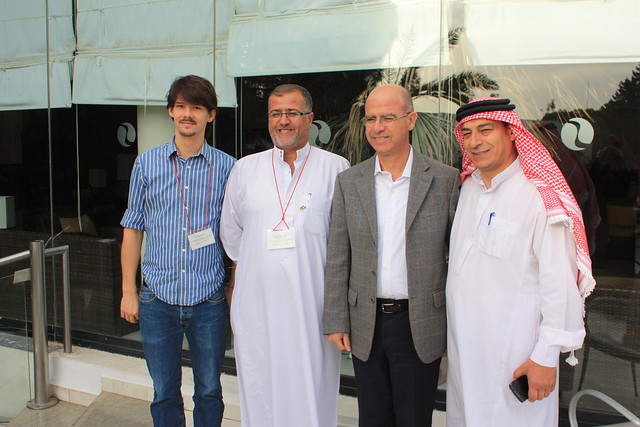Eight things pastoralists in North Africa and West Asia want
Representatives from ten countries identify development priorities

Pastoralists from a swathe of countries from Mauritania to Iran have identified a set of common priorities to support pastoral development in their region. Representatives of herding groups from Algeria, Egypt, Iran, Jordan, Mauritania, Morocco, Saudi Arabia, Sudan, Tunisia and Turkey met in Hammamet, Tunisia, from 14 to 16 January 2016 to seek solutions to issues that affect them.
Pastoral groups include Bedouin, Kurds, Berbers, Tuareg and Sahrawi; they herd their animals in the arid and semi-arid lands that stretch from the Atlantic to the Caspian and beyond. They face numerous, urgent problems, including climate change, population growth, insecurity and migration.
Representatives argued that investments in pastoral livelihoods would improve food security, create employment and reduce conflicts. The meeting was organized by the World Alliance of Mobile Indigenous Peoples (WAMIP), Vétérinaires Sans Frontières (VSF), Alnawatif Cooperative-Jordan, the International Fund for Agricultural Development (IFAD) and FAO’s Pastoralist Knowledge Hub.
The representatives issued two joint statements outlining their priorities. The Hammamet declaration of North African and West Asian pastoralists and a statement with investment recommendations for IFAD list eight major points:
1. Strengthen pastoralist organizations: The representatives argued that local pastoralist organizations can effectively represent their communities and provide them with services. But they need support. They want to work together with NGOs and governmental institutions and see themselves as ideally placed to implement development programmes.
2. Include pastoralist representatives in policy dialogue: Pastoralist representatives want to be included in decisions and political processes that affect them. They know the needs and concerns of their communities and want that these are addressed by policies and legislations.
3. Preserve, valorise and promote indigenous knowledge and culture: Pastoralist communities rely on a rich legacy of knowledge that allows them to survive in harsh environments. The representatives said that pastoralist culture, customs and traditions have to be protected and passed on to the next generation. Their knowledge should be used to manage rangelands better and to improve livestock production. Research on how to valorise such knowledge is needed. Pastoralists’ rights to their land, culture, language, social norms and traditions must be acknowledged and respected.
4. Improve water availability, access and management: Water has always been one of the biggest limiting factors and will become even more so in the face of climate change. Water pumps should be maintained and wells deepened. Water sources have to be well managed.
5. Secure and improve land tenure: Accessing rangeland has become difficult. Grazing land is being lost to oil and gas extraction, mining, urbanization and the expansion of farmland. Different governance systems overlap, making it unclear whether the land is managed privately, by the government, or by customary law. Governments should recognise the economic value of rangelands and adapt international conventions and guidelines to better manage rangelands
6. Improve public infrastructure and services: Many pastoralist communities lack basic public services. Education (including adult literacy) and health services adapted to the mobile livelihoods of pastoralists are needed.
7. Invest in pastoralist economies and livestock productivity: Support is needed in many areas. Better veterinary services would improve animal health and make it possible for herders to earn more from their animals. Eco-tourism, handicrafts and fair trade open new opportunities to diversify incomes. Pastoralist organizations want to be trained in processing and marketing of their products. New financial services such as microcredit and banking have to be developed to suit mobile pastoralist livelihoods. Information on markets can be distributed through new communication technologies.
8. Improve coordination between stakeholders: The representatives said that many of the institutions that work with pastoralist communities do not coordinate their activities. Efforts in some communities are duplicated, while others are left out. Donors, NGOs and government institutions working on pastoralism in the same areas should coordinate their work to make it more effective.

